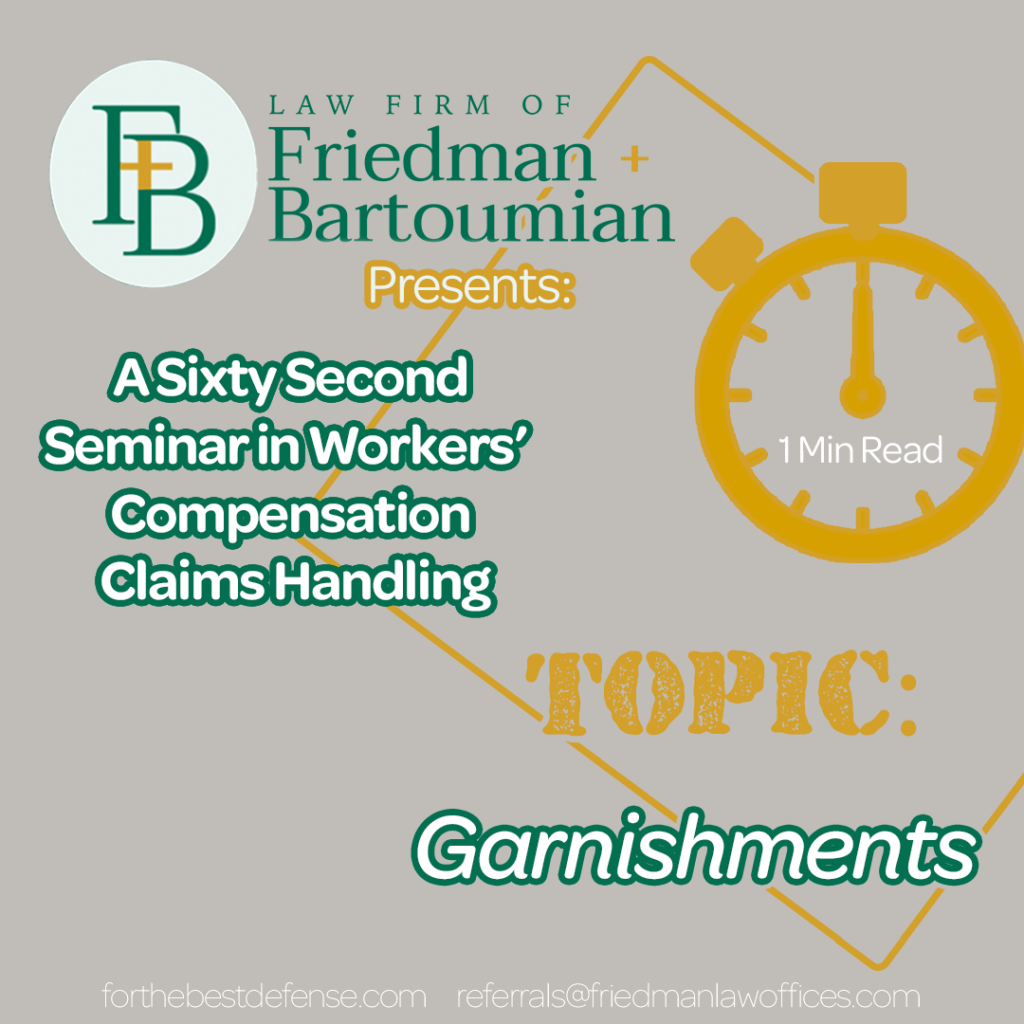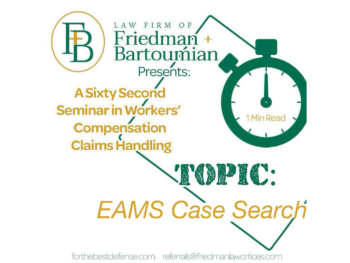
Pursuant to California Labor Code § 138.5, the Division of Workers’ Compensation is required to cooperate with the Department of Child Support Services in the enforcement of family support orders. In addition, Code of Civil Procedure § 704.160 explains the procedure for garnishment of workers’ compensation temporary disability benefits to satisfy child support obligations.
The maximum amount that can be garnished is 25% of each TD payment, or the amount ordered by the court, whichever is less, rounded down to the nearest whole dollar. The claims administrator is also allowed to subtract a $2 administration fee from each TD payment made.
Most claims administrators are unaware of this $2 rule and consequently, it is seldom enforced. However, several years ago a large claims department in Northern California handling multiple garnishments decided to enforce this rule and started charging a $2 fee for each garnishment, which it deposited into a special account created exclusively for that money. After three years over a quarter million dollars was in that account. Again, this money belongs to the claims administrator and is deducted from the injured worker’s TD check pursuant to CCP § 704.160(c) as a garnishment administration fee.
Garnishment checks are payable to the State Disbursement Unit (SDU) and are to be mailed to P.O. Box 989067, West Sacramento, CA 95798-9067. Be sure to include the Disbursement Unit’s case number and the employee’s social security number on the check to ensure the payment is matched to the appropriate SDU file. A tax ID number is not required when issuing a garnishment check to the Disbursement Unit. However, for those claims offices that insist on listing a tax ID number, they may use 94-6000545, which is a “dummy number” created by the IRS specifically for the State Disbursement Unit to appease those administrators unfamiliar with tax law.
When multiple workers’ compensation garnishment orders exist, only one check is to be issued. The State Disbursement Unit will do the math and divide the payment among the multiple garnishers for equitable distribution.
A judicial order is not required to garnish TD, nor must a judicial officer sign the notice of garnishment issued by county or state child support services. With respect to permanent disability and PDAs, garnishment is not allowed unless a special order is first issued by a WCJ. As for an “out of state” garnishment order, the garnisher must first activate the order by registering it in California Family Court using form FL-570. Only then can TD be garnished. This procedure is in accordance with the Uniform Interstate Family Support Act (UIFSA).
Should you have a vexing question about a child support garnishment issue in workers’ compensation, reach out to the experts at Friedman + Bartoumian!


 PD Overpayments: A Sixty-Second Seminar in Workers’ Compensation Claims Handling
PD Overpayments: A Sixty-Second Seminar in Workers’ Compensation Claims Handling
Leave a Reply